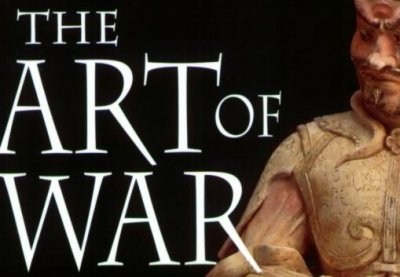Noah Smith’s latest post about the “Macro Wars” got me thinking more about what’s really transpiring in the world of macroeconomics. You see, when the crisis hit, mainstream economists were attacked. Their models were questioned, their principles were questioned and parts of their work was even proved completely wrong. People began looking for alternatives. And some of the heterodox schools gained momentum. Austrians and Post-Keynesians in particular. Many of the Austrians had predicted the crisis just as the Post-Keynesians had. But that’s where the similarities stopped.
Many Austrians made disastrous predictions about high inflation, hyperinflation, US government default, surging bond yields, collapsing USD, etc while most of the Post-Keynesians took the other side of these trades (I personally stated, in real-time that all of these predictions would be wrong). Obviously, the Post-Keynesians won. In my opinion, the Austrian school has suffered serious and potentially unrecoverable damage. But ideology is strong with the Austrians so there will always be a group of people within the Austrian school who are willing to overlook facts for fiction simply because it makes them feel better about their political biases.
Anyhow, Noah basically broke the two groups down into the “Hard Money Coalition” and the “Monetary Alliance”. And he said the Post-Keynesians were only just aligning with the Hard Money Crowd on financial instability. I don’t think this is quite right. Here’s a few thoughts:
- First of all, Post-Keynesians work from the foundation of stylized facts. We look for what IS and work our understandings of the system from there. We recognize that we have a fiat monetary system and whether you like it or not does not really matter. If you’re going to understand how the actual system works then there’s no point in constantly interjecting your beliefs about the gold standard into the debate. It’s like debating air quality on Earth while constantly using evidence from the atmosphere on Venus. Just stop it already. We have a fiat monetary system and until it changes there’s little point in trying to interject hard money based beliefs into the discussion. So the “Hard Money Coalition” and the PKers are planets apart on this topic.
- Second, PKers embed Minsky’s Financial Instability Hypothesis into their work. In essence, a capitalist economy is the summation of irrational participants who will inevitably respond inefficiently to changing conditions. This creates a constant state of disequilibrium. Minsky and other PKers have been discussing these topics for decades so they’re hardly new positions even if they make us appear aligned with the Austrians at times.
- Lastly, As someone who’s engaged in the financial markets on a daily basis I can tell you from personal experience that it’s not a coincidence that the “Greenspan Put” and “Bernanke Put” has guided portfolio decision making and coincided with two of the largest bubbles in US market history. Traders really do look at Fed policy and say “so what if the news is bearish, the Fed will support the markets”. That is precisely the kind of mentality that results in bubbles and contributes to the instability. To someone who is directly involved with asset managers who move billions of dollars of capital this just looks like another case of stylized fact. Economists can reject this if they want, but that just means they don’t get out enough and actually talk to the people moving capital.
But the real point is not about PKers and the Hard Money Coalition. In my opinion, this “war” is not between monetary policy and fiscal policy or hard money versus fiat money or PKers aligning with Austrians against the Monetarist Alliance. The real war that’s coming is between the Post-Keynesians and the “Monetarist Alliance”. After all, the Post-Keynesians got so much right about the crisis and its aftermath that one would have to be extremely biased to just shrug us off as sheer luck or unworthy of further consideration. And our ideas have the potential to force mainstream economists to rethink much about the way they do economics….It would be nice if it didn’t turn into a “war” so much as a meeting of the minds, but I think the PKers deserve a seat at the table in case we’re going to start negotiating the terms of war.
Mr. Roche is the Founder and Chief Investment Officer of Discipline Funds.Discipline Funds is a low fee financial advisory firm with a focus on helping people be more disciplined with their finances.
He is also the author of Pragmatic Capitalism: What Every Investor Needs to Understand About Money and Finance, Understanding the Modern Monetary System and Understanding Modern Portfolio Construction.


Comments are closed.